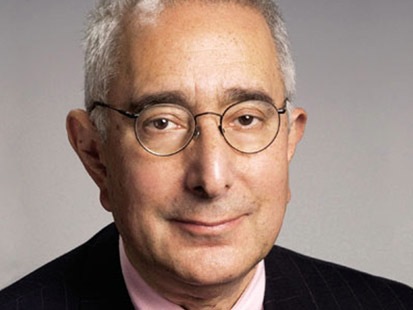To What Do You Aspire?

“To understand the heart and mind of a person, look not at what he has already achieved but what he aspires to.”
–Kahlil Gibran (Lebanese Poet and Philosopher, 1883-1931)
Finding What You Love

“You can only become truly accomplished at something you love. Don’t make money your goal. Instead, pursue the things you love doing, and then do them so well that people can’t take their eyes off you.”
–Maya Angelou (African-American Poet, Writer and Performer, 1928-)
Knowing What You Want

“The indispensable first step to getting the things you want out of life is this: decide what you want.”
–Ben Stein (American Attorney, Professor, Writer and Game Show Host, 1944-)
A Test of Purpose

“Here is a test to see if your mission on earth is finished. If you are alive, it isn’t.”
–Sir Francis Bacon, 1st Viscount Saint Albans, Baron of Verulam (English Lawyer, Statesman, Philosopher and, from 1618-1621, Lord Chancellor of England, 1561-1626)
The Horse, The Farmer and Silver Linings

I was talking to someone who has recently had a series of apparent mishaps in his life. And yet every one of them has so far turned out to have a silver lining,
I made the point to him that if we do indeed live in a meaningful, purposeful Universe, then we also have to accept that we cannot always see the reasons why thing happen. Certainly some things may happen “by chance,” but most events that involve conscious thought cannot be explained away as “chance” or “coincidence.”
It reminded me of a story that has been told and retold around the world in different forms since the dawning of time. I like this version from China:
“There was a wise old farmer whose horse ran away. All the neighbors came to commiserate and say, “That’s bad.”
But the farmer said, “Perhaps.”
Then the next day, the horse came back with a whole herd of wild horses, and the neighbors all said, “That’s good.”
And the old farmer said, “Perhaps.”
The very next day the farmer’s son broke his leg trying to tame one of the wild horses and the neighbors said, “That’s bad.”
And the old farmer said, “Perhaps.”
Just after the son broke his leg, the army came through and drafted all the young men and took them off to war. But they left the farmer’s son because his leg was broken.
All the neighbors said, “That’s good” to which the wise old farmer simply said, “Perhaps.”
“But there is suffering in life, and there are defeats. No one can avoid them. But it’s better to lose some of the battles in the struggles for your dreams than to be defeated without ever knowing what you’re fighting for.”
–Paulo Coelho (Brazilian Writer, 1947-)
“Every human life had its pattern that had to be worked out slowly to its ultimate conclusion.”
–Irving Stone (American Writer, 1903-1989)
“Man has come here with a definite purpose. Life is not meant merely for eating drinking and procreating.”
–Sri Swami Sivananda (Indian Physician and Spiritual Teacher, 1887-1963)
“There are no mistakes, no coincidences. All events are blessings given to us to learn from.”
–Elisabeth Kübler-Ross (Swiss-born American Psychologist, 1926-2004)
“You cannot discover the purpose of life by asking someone else – the only way you’ll ever get the right answer is by asking yourself.”
–Terri Guillemets (American Writer, 1973-)
“You have a purpose only as long as you are not complete; until then, completeness, perfection, is the purpose. But when you are complete in yourself, fully integrated within and without, then you enjoy the Universe; you do not labor at it.”
–Sri Nisargadatta Maharaj (Indian Spiritual Teacher and Exponent of Jnana Yoga and Advaita Doctrine, 1897-1981)
Empowerment

It is sometimes frustrating to see peoples’ medical problems reduced – incorrectly – to a single factor. Worse yet, failing to see that all the systems of the body, the mind, our relationships, environment and spirituality all have a part to play in the maintenance of our health and the treatment of disease.
I grew up in England and benefited from and then trained and worked in the National Health Service. Which is nothing of the sort: it is a disease management service.
The problem lies not with money or inefficient systems, but with an emphasis on management rather than prevention of disease.
The next revolution in healthcare is not being driven by science and technology, but by empowerment: being given the tools for taking personal responsibility for our own health and well-being.
Not just so that we feel better and may have the chance of avoiding costly medicines, but so that we can grow as individuals.
The ultimate goal of any form of personal development, of psychotherapy and indeed of medicine, is to remove restrictions from people.
Freedom unlocks human potential.
We are inundated with information about health. Much of the information is confused and confusing. Integrated Medicine is based on the idea of integrating different approaches and integrating the different parts of a person and all of his or her relationships form cell to soul.
The key to that is understanding how to fit all the pieces together, whether a person is a Buddhist or a Baptist, a meat-eater, vegan or junk food addict. To be able to answer these kinds of questions:
- What diet is right for me personally?
- What type of exercise should I do at my age, level of fitness and time constraints?
- How can I get the quality sleep that I need with all the demands on my time?
- How can I manage the stress in my life?
- How can I manage my emotions so that I run them instead of them running me?
- How can I have satisfying connections with other people?
- How can I find my meaning and purpose in life?
The good news is that we already have answers to most of those questions and we have developed hundreds of tips and techniques that people can do in minutes a day.
I revealed some in the book and CD series Healing, Meaning and Purpose, and in response to a great many requests, I shall be sharing many of these techniques in the months to come.
“Health is a state of complete harmony of the body, mind and spirit. When one is free from physical disabilities and mental distractions, the gates of the soul open.”
–B.K.S. Iyengar (Indian Yoga teacher, 1918-)
“If we could learn how to balance rest against effort, calmness against strain, quiet against turmoil, we would assure ourselves of joy in living and psychological health for life.”
–Josephine L. Rathbone (American Sports Physiologist and Pioneer in Health and Relaxation, 1899-)
“Personal transformation can and does have global effects. As we go, so goes the world, for the world is us. The revolution that will save the world is ultimately a personal one.”
–Marianne Williamson (American Author, Unity Church Minister and Lecturer on Spirituality, 1952-)
“Questions focus our thinking. Ask empowering questions like: What’s good about this? What’s not perfect about it yet? What am I going to do next time? How can I do this and have fun doing it?”
–Charles Connolly (American Psychologist)
RP On The Radio Part Deux

I mentioned that Kim Colvard and I were going to be having an online discussion. We covered a lot of topics and we’ve had some great feedback.
We are definitely going to do this again!
You can download the file here.
Enjoy!
Irritable Bowel Syndrome, Mood Disorders, the Serotonin Transporter and Integrated Medicine
Whenever we run into two common conditions, it’s easy to imagine links where none really exists. Three years ago some colleagues from Oxford reported on a person with bipolar disorder and irritable bowel syndrome, and commented that the association was uncommon.
However there may after all be a genuine link between mood disorders and irritable bowel syndrome, that is a disturbance in the “third arm” of the autonomic nervous system. The first arm is the sympathetic nervous system, the second the parasympathetic and the third is the enteric or gut nervous system that is closely linked with key regions of the brain.
Not long ago there was an interesting report of a woman who had multiple problems including environmental allergies, atypical bipolar disorder, irritable bowel syndrome and Raynaud’s phenomenon. Such odd constellations of problems are quite familiar to anyone working in the major referral centers around the world, and some can be exceedingly hard to treat. Tough cases like this often stimulate further research. I once tried and failed to treat a woman with a chronic illness. When she came back a year later to see if I had any new ideas, I told her that I now had a shelf of books and over a thousand reprint of papers about her condition: I don’t like failing someone. And I’m not unique in that.
A new study from the Karolinska Institute in Stockholm, has found that chronic widespread pain, which, as I explained recently, is the cardinal symptom of fibromyalgia, is prevalent and co-occurs with other symptom-based conditions such as chronic fatigue syndrome, joint pain, headache, irritable bowel syndrome, and psychiatric disorders.
There is more and more evidence of a link between fibromyalgia, irritable bowel syndrome and depression. It is not just that people are sick and get depressed: as we shall see in a moment, the link is more subtle than that. Another illness seemingly linked to these three is interstitial cystitis.
Now some colleagues at the National Institutes of Health have been looking at a serotonin transporter (SERT) that regulates the entire serotoninergic system and its receptors. This transporter is found throughout the animal kingdom, telling us that it must be important.
In humans the gene is located on chromosome 17, and disturbances in it have been found in people with autism, ADHD, Tourette’s syndrome and bipolar disorder. Experiments using genetic engineering suggest that SERT may be a candidate gene for several human disorders, from obesity to irritable bowel syndrome. People who have disturbances in SERT tend not to respond so well to the serotonin reuptake inhibitors (SSRI’s) antidepressant medicines.
SERT is not the whole story. Some geneticists from Los Angeles have found evidence linking irritable bowel syndrome, depression, migraine and inheritance of mitochondrial DNA.
Many approaches have been tried to help people with these groups of problems. I always find it remarkable that psychological treatments can be so effective in conditions with a genetic component, for this once again proves that biology is not destiny.
The best approaches to conditions like irritable bowel syndrome and coexisting mood disorders is to use medications and psychological approaches. Many of us have also found that the addition of nutritional, environmental and subtle energetic approaches have been of great help, together with some work to uncover the meaning and transpersonal value of a chronic illness. That last piece is not the first priority, which is to help the person gain control of his or her life. But if we don’t do something to work with the meaning and purpose of an illness, it will usually come back in some form or other. This comprehensive approach differentiates Integrated Medicine from many other types of therapy.
Resilience, Misfortune, and Mortality

Much of the development of the ideas of Integrated Medicine has been driven by the idea that a truly effective holistic medicine does not simply integrate different modalities to achieve health and wellness, but is also aimed at integrating all the different aspects of a person into a coherent whole. That was the real reason for choosing the term “Integrated” medicine in the United Kingdom, though “Integrative” and “Integral” medicine are ultimately all aiming for the same thing.
This is quite different from simply adding some acupuncture, an herb or some relaxation therapy to a conventional medical program. Its aim is not so much getting someone better, as to give the whole person – physical, psychological, social, subtle and spiritual – what he or she needs to be able to get themselves back on an even keel, so as to be able to deal with future challenges as they arise. And not just deal with them, but to use challenges as springboards to growth and development.
The whole idea of this system of medicine included an extra dimension that had often been left out: the interaction between the person in trouble and the practitioner. We are social animals, but even more than that it looks as if we are highly interconnected from cell to soul. We have to take into account the impact of a therapeutic interaction on the clinician, as well as the influence of the clinician’s psychological, subtle and spiritual makeup on the individual.
The development of this system of medicine had many parents. One was the American-born Israeli sociologist Professor Aaron Antonovsky who first generated the idea of salutogenesis: the study of the factors that support human health and wellness. He was one of the first to show that people who were relatively unstressed were far more likely to be able to resist illness, compared with stressed people. His interest was not just in what causes disease, but what are the roots of health.
He returned to and discussed, developed and applied an idea that had been around since the work of Sigmund Freud and Roberto Assagioli: that was that our experience of well-being constitutes a Sense of Coherence (SOC). He defined the sense of coherence like this:
“A global orientation that expresses the extent to which one has a pervasive, enduring though dynamic feeling of confidence that one’s internal and external environments are predictable and that there is a high probability that things will work out as well as can reasonably be expected.“
Two recent studies seem to indicate that this concept of coherence is fundamentally correct.
Researchers in Cambridge in the United Kingdom have reported a population-based cohort of 20,921 men and women completed a postal assessment of their lifetime experience of specific adverse events and a measure of their sense of coherence. Those with a weak SOC reported significantly slower adaptation to the adverse effects of life experiences, compared with those with a string SOC, and were more likely to die prematurely. Although the size of the effect was not large, the results suggest that SOC is a potential marker of an individual’s adaptive capacity to deal with social stress, which is predictive of mortality
The second study was a systematic review from Finland. I like the way in which the study was done, and it came to this conclusion:
“SOC seems to be a health promoting resource, which strengthens resilience and develops a positive subjective state of health. Salutogenesis is a valuable approach for health promotion.”
So what does this mean for you?
Developing a sense of coherence is a most critical factor in creating and maintaining robust health and ability to adapt to change, be it in health, stress, your relationship or at work.
How do you do that? Healing, Meaning and Purpose spends over a hundred pages or several CDs explaining the most up to date ways of doing exactly that using a process known as Creative Self-Integration.
I do hope that you take the opportunity to sample some of the techniques for yourself.






